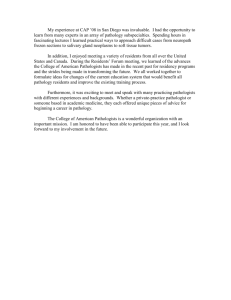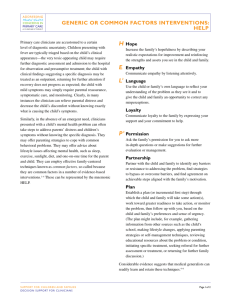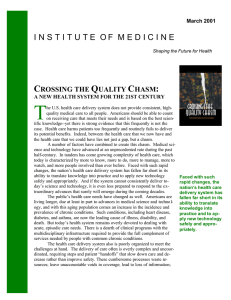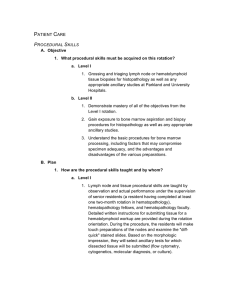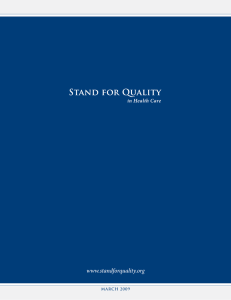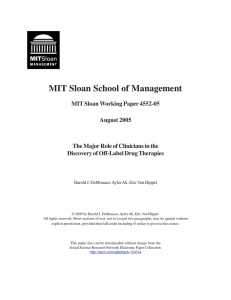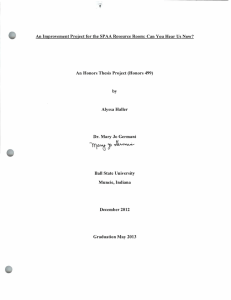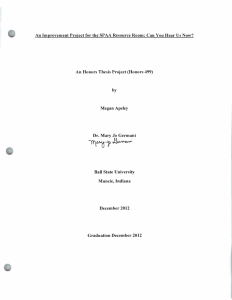I C S
advertisement
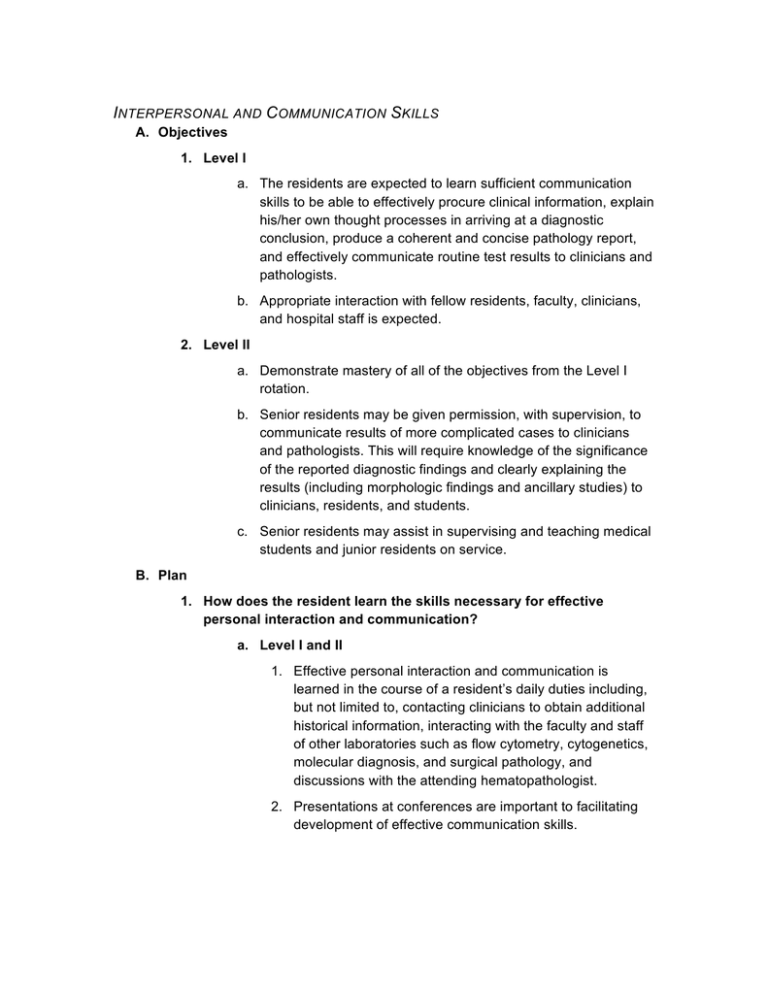
INTERPERSONAL AND COMMUNICATION SKILLS A. Objectives 1. Level I a. The residents are expected to learn sufficient communication skills to be able to effectively procure clinical information, explain his/her own thought processes in arriving at a diagnostic conclusion, produce a coherent and concise pathology report, and effectively communicate routine test results to clinicians and pathologists. b. Appropriate interaction with fellow residents, faculty, clinicians, and hospital staff is expected. 2. Level II a. Demonstrate mastery of all of the objectives from the Level I rotation. b. Senior residents may be given permission, with supervision, to communicate results of more complicated cases to clinicians and pathologists. This will require knowledge of the significance of the reported diagnostic findings and clearly explaining the results (including morphologic findings and ancillary studies) to clinicians, residents, and students. c. Senior residents may assist in supervising and teaching medical students and junior residents on service. B. Plan 1. How does the resident learn the skills necessary for effective personal interaction and communication? a. Level I and II 1. Effective personal interaction and communication is learned in the course of a resident’s daily duties including, but not limited to, contacting clinicians to obtain additional historical information, interacting with the faculty and staff of other laboratories such as flow cytometry, cytogenetics, molecular diagnosis, and surgical pathology, and discussions with the attending hematopathologist. 2. Presentations at conferences are important to facilitating development of effective communication skills. C. Supervision/Assessment 1. How are the resident’s interpersonal and communication skills assessed and by whom? a. Levels I and II 1. Interpersonal and communication skills will be assessed through direct observation by hematopathology faculty, fellows and clinicians and quality of case presentations. 2. The rotation director will discuss verbal and written assessments provided by faculty, fellows, supporting staff, and clinicians at both the midpoint and endpoint of the rotation.
